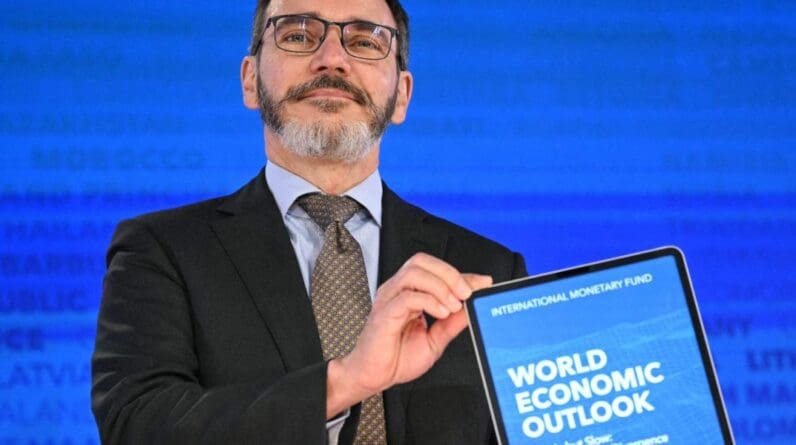
The U.S. economy is hot, and China’s is so not.
The U.S. is on track to grow 2.7% this year, double the rate of the next closest country in the G7, the grouping of some of the world’s most advanced economies, according to the International Monetary Fund’s latest World Economic Outlook. Estimated U.S. economic growth for the year is up from the 2.5% growth it experienced in 2023, and 0.6 percentage points higher than the IMF’s previous calculation.
Behind the surprising growth is strong consumer demand that has buoyed the U.S. economy despite the setback of COVID-19 and geopolitical disturbances such as Russia’s invasion of Ukraine, according to Tuesday’s report.
“Astonishingly, the US economy has already surged past its prepandemic trend,” economists for the IMF wrote.
Meanwhile, China’s usually gangbusters economy, while having recently reported strong first quarter numbers, could be unsteady in the long-run, with the IMF projecting the country’s growth to slow to 4.6% for the year, compared to 5.2% in 2023.
China, which has for months been dealing with a real-estate crisis, could exacerbate its economic problems by failing to address them immediately, according to the report.
“In the absence of a comprehensive restructuring policy package for the troubled property sector in China, a larger and more prolonged drop in real estate investment could occur, accompanied by expectations of future house prices declining, reduced housing demand, and a further weakening in household confidence and spending, with implications for global growth,” the report said.
While the U.S. is leading the world in growth, its performance in the years to come is uncertain as still-elevated inflation numbers have cast doubt on whether the Federal Reserve would cut rates as expected by the end of the year.
On Tuesday, Fed Chairman Jerome Powell scaled back his previous outlook on rate cuts. Powell said the hot inflation measures, including a CPI of 3.5% in March (a 0.3% percentage point increase from February), have “clearly not given us greater confidence,” adding that the data instead “indicate that it is likely to take longer than expected to achieve that confidence,” the Wall Street Journal reported.
The IMF echoed Powell’s concern in the World Economic Outlook, stating that central banks worldwide need to ensure that “inflation touches down smoothly.” Although many investors and market onlookers had expected multiple rate cuts for the year, inflation has changed the calculation for the Fed.
“The exceptional recent performance of the United States is certainly impressive and a major driver of global growth,” the IMF report read. “But it reflects strong demand factors as well, including a fiscal stance that is out of line with long-term fiscal sustainability.”







